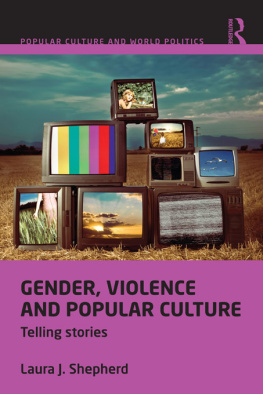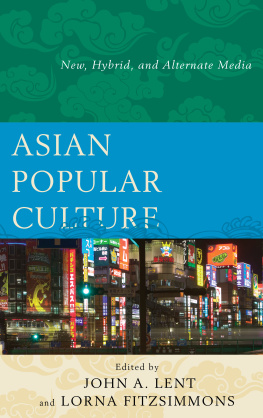
Potboilers
Potboilers looks at the many forms of popular narrative - in print, film and TV. It considers the ways they have been analysed in literary criticism, sociology, communications, media and cultural studies. The book introduces and summarises two decades of debate about mass-produced fictions and their position within popular culture. It assesses the methods that have been used in these debates, focusing both on narrative analysis and the communications process. It explores generic conventions, the role of commercial strategies, and the nature of the audience with reference to crime fiction, soap opera, romance and TV sitcom.
Distinctions between 'high' and 'low' culture have relegated many popular forms to the trash-can of 'great' literature. This book takes stock of the methods and concepts used to analyse popular culture and argues for a non-elitist approach to the study of literature, film and television.
Jerry Palmer's analysis of the debates surrounding popular fiction gives a clear account of existing work and provides an invaluable guide for students and teachers of literature, communications, media and cultural studies.
Jerry Palmer is a Professor of Communications at City of London Polytechnic. He is the author of Thrillers (1978) and The Logic of the Absurd (1987), and the wide range of articles he has written on popular culture indicates his lasting interest in the field.
Communication and Society
General Editor : James Curran
Communication and Citizenship: Journalism and the Public Sphere in the Media Age
Edited by Peter Dahlgren and Colin Sparks
What News? The Market, Politics and the Local Press
Bob Franklin and Dave Murphy
Critical Communication Studies: Communication, History and Society in America
Hanno Hardt
Glasnost, Perestroika and the Soviet Media
Brian McNair
Images of the Enemy
Brian McNair
Seeing and Believing: The Influence of Television
Greg Philo
Pluralism, Politics and the Marketplace: The Regulation of German Broadcasting
Vincent Porter and Suzanne Hasselbach
Media Moguls
Jeremy Tunstall
Potboilers
Methods, concepts and case studies in popular fiction
Jerry Palmer
First published 1991
by Routledge
Published 2014
by Routledge
2 Park Square, Milton Park, Abingdon, Oxon OX14 4RN
711 Third Avenue, New York, NY 10017, USA
Simultaneously published in the USA and Canada
by Routledge
Routledge is an imprint of the Taylor & Francis Group, an informa business
1991 Jerry Palmer
Set in 10/12pt Times by Selectmove
All rights reserved. No part of this book may be reprinted or reproduced or utilized in any form or by any electronic, mechanical, or other means, now known or hereafter invented, including photocopying and recording, or in any information storage or retrieval system, without permission in writing from the publishers.
British Library Cataloguing in Publication Data
Palmer, Jerry.
Potboilers: methods, concepts and case studies in popular fiction.
1. Fiction
I. Title
823.91209
Library of Congress Cataloging in Publication Data
Palmer, Jerry.
Potboilers: methods, concepts, and case studies in popular
fiction / Jerry Palmer.
p. cm. (Communication and society)
Includes bibliographical references.
1. American fiction20th centuryHistory and criticismTheory,
etc. 2. Popular literatureUnited StatesHistory and criticism
Theory, etc. 3. United StatesPopular cultureHistory20th
century. 4. Books and readingUnited States. 5. Canon
(Literature) 6. Literary form. I. Title. II. Series:
Communication and society (Routledge (Firm))
PS374.P63P34 1991
302.23'0973dc20 91-14013
ISBN 978-0-415-00977-5
ISBN 978-0-415-00978-2 (pbk)
ISBN: 978-0-203-13161-9 (eISBN)
To Berlin Walls, everywhere, and especially the one that separates low culture from high
Contents
Popular narrative has not traditionally been well regarded in academic institutions.
The clearest expression of this disregard is silence. In 1982 the journal Literature , Teaching , Politics constructed a 'league table' of English literature by listing the authors who had figured on British public examinations syllabuses during the previous few years. If we count as one unit each occasion on which a given work appears on a syllabus, there were a total of 1,389 units on the syllabuses, of which more than half (699) were accounted for by the 'top 17 classic' writers (Shakespeare alone accounted for 190 units). In this pantheon only four units could be counted as popular narrative: John Wyndham, H.G. Wells, a collection of Gothic novels and Jules Verne. More recently, changes have occurred: the proliferation of courses in film and television studies, the reform of English literature public examinations, with syllabuses in part chosen by schools, all have encouraged the study of popular narrative. In the United States the traditional disregard was undermined at an earlier stage by the centrality of American literature, and the more developed interest in the mass media.
The reasons for traditional disregard are instructive. In broad outline, the literature syllabus consisted of a corpus of texts - the 'canon' - and a method of teaching, based upon the progressive refinement of aesthetic response. The two components were mutually reinforcing, in that the method made sense given the corpus of texts, and the selection of texts made sense given the method. Popular fiction challenges both, and we shall see that the choice of popular texts demands new methods of study. First, it is useful to explore the canon and its methods in more detail.
Part of the traditional disregard may be imputed to condemnation of popular narrative as unworthy of study. This judgement is typical, if more forthright than usual:
Hardly anyone is unaware - at least viscerally - that 99 per cent of the material conveyed to us by the mass communication media is aesthetically and intellectually trivial... elevating worthless books to best-sellerdom, and endorsing TV imbecilities via the ratings polls .... Sub-art systematically unfits a person for art and vice-versa... heavy consumption of one eventually obviates the other.
(Rosenberg, 1971: 7, 11)
The distinction between 'art' and 'sub-art' which underpins this condemnation has a long and complex history; it is ultimately political in nature. The arguments in question are commonplace in all industrialised societies - for the sake of convenience I follow the British version (cf. Bramson, 1967; Giner, 1976).
Coleridge was the first to claim, in Britain, the need for a 'secular clerisy', a social stratum who would diffuse a set of values. Adherence to these values would constitute a form of commonality akin to that achieved by religion (or supposedly so) at an earlier stage in history. In different post-Romantic thinkers the agency varied, and the tactics to be followed too: but throughout the long nineteenth-century debate on the nature of culture there is to be found at its heart an emphasis on the need in our society for a common sense of values and some agency to create and diffuse them. Within this process of value creation the arts have been accorded varied importance, but a high status is common. For Shelley, in a famous phrase, the poet was the 'unacknowledged legislator' of mankind. For Arnold too poetry, with education and criticism, was an integral part of the 'best-self' of man, that imaginary exemplar whose imitation would save mankind from anarchy (Williams, 1958: 125-36). Subsequently, for F.R. Leavis and the movement of which he is the best-known representative, the appreciation and study of literature becomes the key feature of the creation of a national culture (Williams, 1958: 246ff.; Mulhern, 1979: 35-40).






